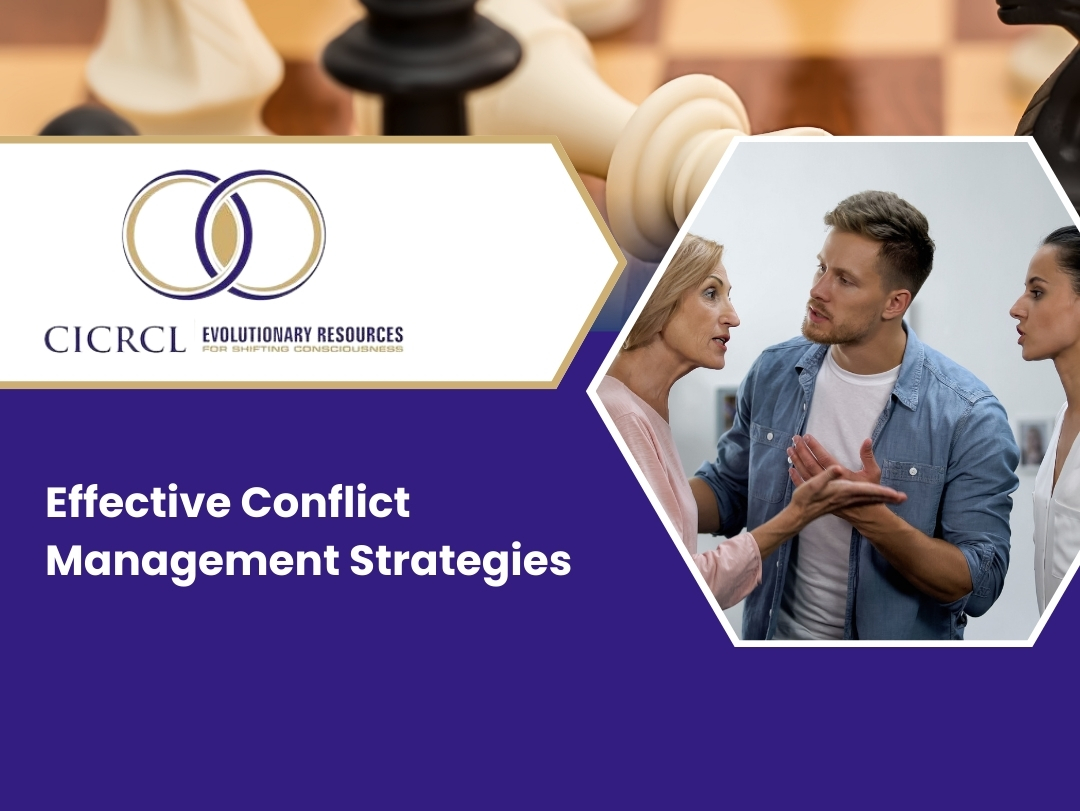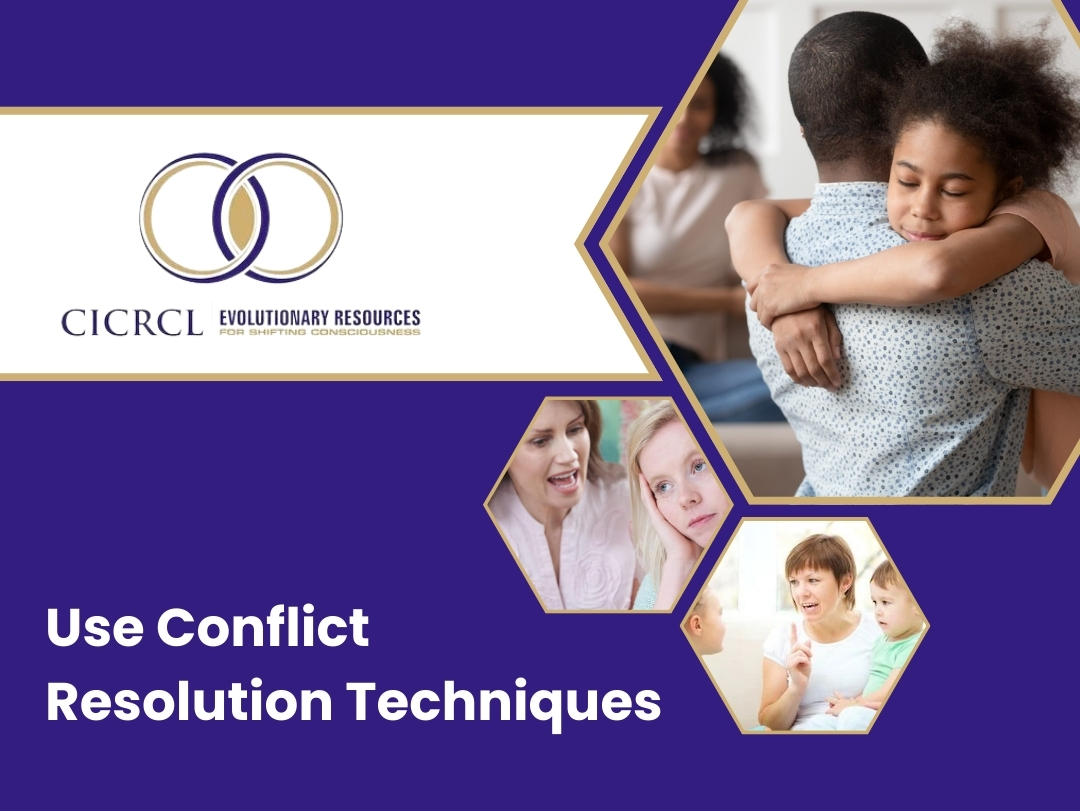In our daily lives, conflict is inevitable. Whether it’s a disagreement with a colleague at work, a misunderstanding with a friend, or tension within a family, conflict can arise in various forms and situations. However, the key to managing conflict lies in how we approach and handle these challenging situations. By exploring effective conflict management strategies, we can learn to navigate conflicts with grace, understanding, and ultimately, resolution.
Understanding Conflict:
Before delving into specific conflict management strategies, it’s essential to understand what conflict is and why it occurs. Conflict arises when there is a perceived difference or disagreement between individuals or groups regarding interests, beliefs, values, or goals. It can manifest in various ways, including verbal arguments, passive-aggressive behavior, or even physical confrontation.
One common misconception about conflict is that it is inherently negative. Although conflict can be difficult and painful, it also offers a chance for development, education, and constructive change. When managed effectively, conflict can lead to improved communication, stronger relationships, and better problem-solving skills.
Effective Conflict Management Strategies:
Communication:
Effective communication is fundamental to managing conflict. Clear, open, and respectful communication can help prevent misunderstandings and facilitate resolution. When conflicts arise, take the time to express your thoughts and feelings calmly and assertively. Listen actively to the other party’s perspective, seeking to understand their concerns and viewpoints. Avoid making assumptions or jumping to conclusions, and strive to find common ground through dialogue and collaboration.
Active Listening:
One essential tactic of conflict management strategy is active listening. It involves fully engaging with the speaker, focusing on their words, and empathizing with their emotions. Practice active listening by maintaining eye contact, nodding, and providing verbal and nonverbal cues demonstrating attention and understanding. Reflective listening techniques, such as paraphrasing and summarizing the speaker’s points, can help clarify misunderstandings and foster empathy.
Empathy:
Empathy is the ability to understand and experience the feelings of another person. Cultivating empathy can enhance communication and facilitate conflict resolution by fostering mutual respect and understanding. Put yourself in the other person’s shoes, acknowledging their emotions and perspectives without judgment. Show empathy through active listening, validation of feelings, and expressions of understanding and compassion.
Problem-Solving:
Approach conflicts as opportunities for problem-solving and collaboration rather than adversarial contests. Identify the underlying issues or interests fueling the conflict and brainstorm potential solutions together. Focus on shared goals and interests, and be open to compromise and negotiation. Encourage creative thinking and explore alternative perspectives to find mutually beneficial outcomes.
Emotional Regulation:
During disagreements, emotions are frequently strong, making it difficult to remain calm and collected. Practice emotional regulation techniques such as deep breathing, mindfulness, or taking a break to calm down before engaging in conflict resolution discussions. By managing your emotions effectively, you can approach conflicts with clarity, objectivity, and self-control.
Assertiveness:
Assertiveness involves expressing your thoughts, feelings and needs respectfully and confidently while also respecting the rights and boundaries of others. Assertive communication can help assert your position, set boundaries, and negotiate effectively during conflicts. Avoid passive or aggressive communication styles, and strive to assert yourself assertively, maintaining a balance between advocating for your interests and respecting the perspectives of others.
Mediation:
Through mediation, disputing parties can communicate and negotiate with each other more easily because a neutral third party is involved. A mediator can help create a safe and structured environment for dialogue, clarify misunderstandings, and guide parties toward mutually acceptable solutions. Consider seeking mediation when conflicts escalate or become entrenched, or when parties are unable to resolve conflicts on their own.
Use Conflict Resolution Techniques:
Numerous conflict-resolution techniques can help facilitate constructive dialogue and problem-solving. Some common techniques include:
Collaborative Problem-Solving: Engage in joint problem-solving discussions to identify and address underlying issues.
Mediation: Involve a neutral third party to facilitate communication and negotiation between conflicting parties.
Negotiation: Use principled negotiation techniques, such as focusing on interests rather than positions, to reach mutually acceptable agreements.
Learn from Conflict:
Conflict can serve as a valuable learning opportunity, providing insights into interpersonal dynamics, communication styles, and areas for personal growth. Reflect on past conflicts and consider what you can learn from each experience. Identify patterns or recurring themes in conflicts and explore strategies for preventing or resolving similar issues in the future.
Our Most Demanding Book for Effective Conflict Management Strategies
Intimate Combat: Conflict Resolution Skills For Couples
Are you tired of feeling like every disagreement with your partner turns into a battlefield? Do you wish you had the tools to navigate conflicts in your relationship with grace and understanding? Look no further than “Intimate Combat: Conflict Resolution Skills For Couples.”
In this groundbreaking book, we delve deep into the art of conflict resolution within romantic relationships. Written by renowned relationship experts, “Intimate Combat” offers practical strategies and insightful advice to help couples overcome their differences and strengthen their bond.
Why Should You Buy “Intimate Combat”?
Effective Strategies: “Intimate Combat” provides proven conflict resolution strategies that are tailored specifically for couples. From communication techniques to compromise tactics, you’ll learn practical skills to address conflicts constructively.
Insightful Guidance: Gain valuable insights into the dynamics of conflict within relationships and understand why disagreements often escalate. With a deeper understanding of the root causes of conflicts, you’ll be better equipped to resolve them peacefully.
Improved Communication: Communication lies at the heart of every successful relationship. “Intimate Combat” offers tips and exercises to enhance communication between partners, fostering greater understanding and connection.
Empathy and Understanding: Learn how to empathize with your partner’s perspective and see conflicts from their point of view. By practicing empathy, you can bridge the gap between differing opinions and find common ground.
Stronger Relationships: By mastering the conflict resolution skills outlined in “Intimate Combat,” you’ll pave the way for a stronger and more resilient relationship. Instead of letting conflicts drive you apart, you’ll emerge from disagreements feeling closer and more connected than ever before.
.Whether you’re newlyweds or seasoned partners, this book is a must-have resource for anyone looking to cultivate lasting harmony and intimacy in their relationship.
Click below to order your copy now and embark on a journey towards more meaningful and fulfilling connections with your partner.
Conclusion:
Conflict is a natural part of human interaction, and learning to manage it effectively is essential for personal and interpersonal growth. By employing strategies for the management of conflict such as communication, active listening, empathy, problem-solving, emotional regulation, assertiveness, and mediation, individuals can navigate conflicts with confidence, respect, and understanding. Remember that conflict resolution is a skill that can be developed and refined over time through practice and reflection. As you encounter conflicts in your daily life, approach them with an open mind, a willingness to learn, and a commitment to finding peaceful and constructive resolutions.



